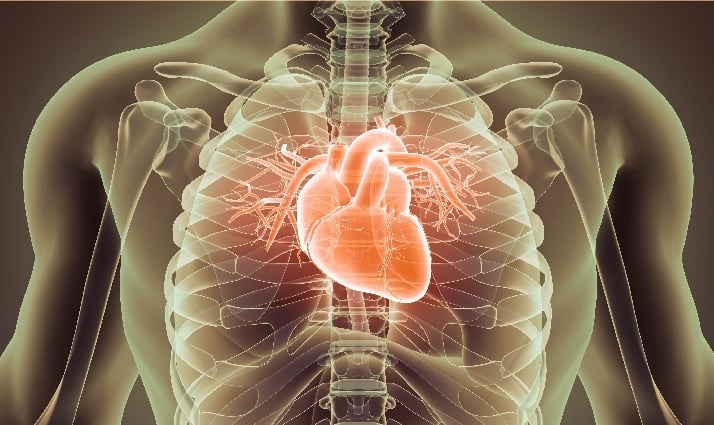Recovery and Outlook after Heart Transplantation
April 12, 2021

When you wake up from the anesthesia after a heart transplant you will find yourself in the Cardiothoracic Intensive Care Unit (CTICU). You will find a team of physicians and nurses monitoring your care and helping you recover from the heart transplant. Your heart transplant evaluation will be carried out by your caregivers to evaluate and monitor your condition.
Heart transplant requires a hospital stay of 7 to 14 days or even longer. During this stay at the CTICU after a heart transplant, you can expect a lot of machines to monitor your heart rate, rhythm, and your blood pressure. You will have to try to tune out the noises and relax.
Most patients stay in the ICU for about two or three days. This varies depending on the pace of the patients’ recovery. Heart transplant surgery recovery time varies with each person and their bodily condition. Your nurses and caregivers will monitor you to avoid any heart transplant complications.It is imperative for you and your caregivers to understand the treatment of the patient and your new heart. Nurses and transplant pharmacists will teach you and your caregivers of your new medication regimen prescribed after the heart transplant.
Breathing Tube Care
As you wake up from anesthesia after the heart surgery, you will notice a breathing tube in your throat. It is connected to a respirator to aid your breathing. You will not be able to talk or swallow. The breathing tube will be removed once you are able to breathe on your own. You will have a sore throat and a hoarse voice after it is removed. It is vital that you practice deep breathing and coughing exercises, and continuously change your position while lying in bed. These are important to prevent postoperative pneumonia.
Drainage Tubes and IV
Drainage tubes will be connected to your chest to drain the fluid which has been accumulated around your heart and lungs during heart transplant surgery. It will be removed when the drainage is clear and is reduced. Immunosuppressant drugs, fluids and medications are administered through an IV line.
Pain after Heart Transplant
There might be some pain when you wake up from anesthesia given during heart transplant surgery. Your caregivers will give you medications to control the pain. Alternative methods of pain control and relief can also be used to relieve the pain caused by heart transplant
Physical Therapy after Heart Transplant
Nurses, respiratory therapists, and physical therapists will work with you as your physical therapy and breathing exercises begin as soon as your heart transplant surgery is done. Your caregivers might recommend cardiac rehabilitation. Your transplant dietitian will provide you and your caregivers about proper nutrition and dietary plans that best suit your transplant health. Your caregivers will give you a list of foods to avoid with heart disease. Your caregivers will provide you with all the necessary heart disease information for you to prevent any future diseases.
Heart Transplant Rejection Monitoring
You caregivers might take blood tests for heart disease monitoring. They will use it to monitor your new heart and other bodily functions. They will monitor you closely to avoid heart transplant rejection. You will be administered with anti-rejection (immunosuppression) medications. For the first six months of surgery, the likelihood for heart transplant rejection is the highest. It is vital to take steps for heart disease prevention to avoid any damage to the new heart given during the heart transplant.
Incision Care
It usually takes about 6 to 8 weeks for the incisions made during the heart transplant to heal. You may experience muscle or incision discomfort in your chest during any sort of activity. There might also be itching, tightness or even numbness along the incision.
- You must maintain your incision clean and dry.
- If it has begun to heal, you may take shower which can not be for more than 10 minutes.
- It is advisable to not rub your incision with a washcloth until the skin has healed
- Any ointments, lotions or dressings are to be strictly avoided on the incision area
- You should not drive for about 6-8 weeks after the heart transplant
- You should also not lift anything for about 6 weeks after your heart transplant surgery
Rela Hospital has an effective transplant programme that is managed by a multidisciplinary team. We provide patients with the required medical expertise by specialists. From initial heart transplant evaluation through post-transplant checkups, our skilled and compassionate heart transplant team in Chennai is always by your side. Contact us for more information 044 6677 8888.









